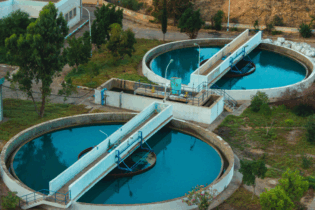A school in drought-stricken Cape Town has reduced its water use by more than 90% thanks to an innovative water-management system developed by one of the country’s leading firms of consulting engineers and environmental scientists.
Benjamin Biggs, a civil engineer and urban water-management specialist at JG Afrika, the firm behind the system, says that it is important to first focus on reducing water use before looking to supplement municipal supply with alternative sources. According to Briggs the firm was able to implement immediate measures at the school that would yield outstanding results early on. “Our experience in several other projects has demonstrated that this upfront work can play an important role in mitigating, or even eliminating the need for more costly and longer-term measures,” he says.Importantly, this step also helps drive changes in water-use behaviour in a water-scarce country.Identifying high impact areas
About 400 people, including educators, administrative staff and students participated in the initiative, starting with basics such as flushing toilets sparingly and reporting water leakages. These interventions were selected based on the findings of the baseline assessment, which combined historical information including utility bills, as well as physical inspections of the plumbing fixtures and equipment.The outcome was used to model water flows to understand end-use quantities for various applications and determine the site water balance, which is the flow of water in and out of a system. This allowed the firm to identify high impact areas to address and assess possible solutions to reduce municipal water use on campus.







